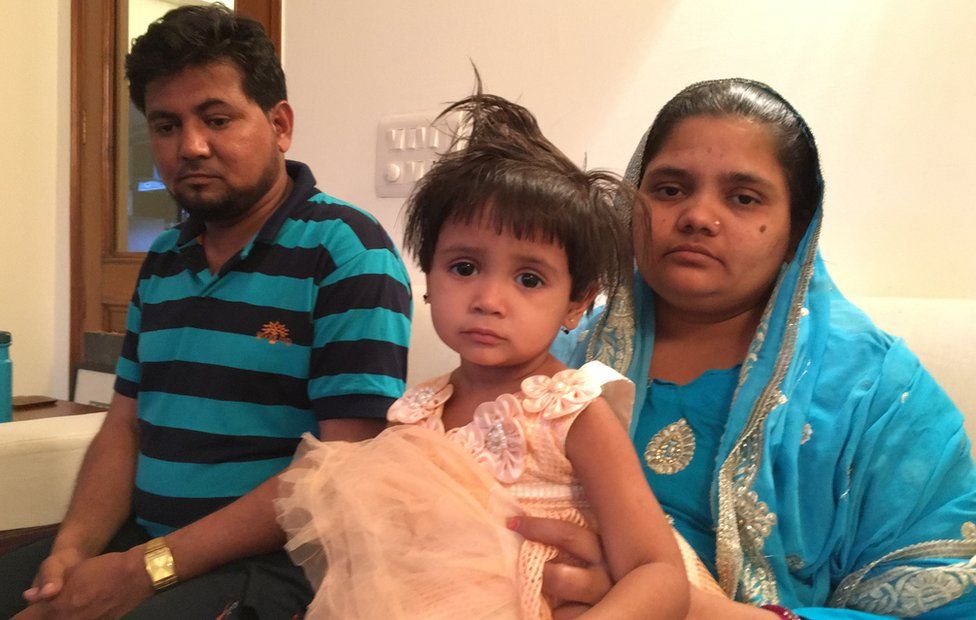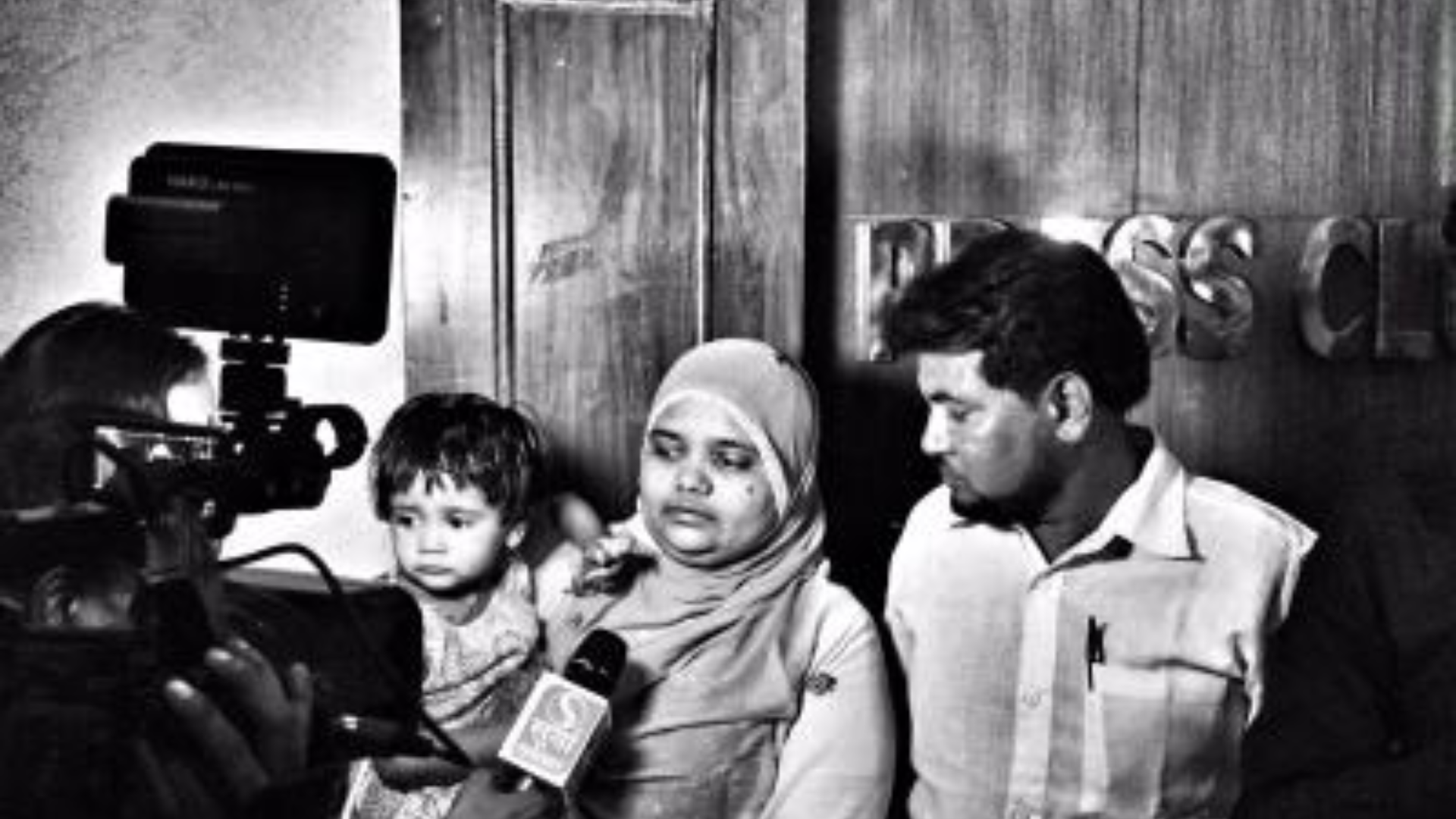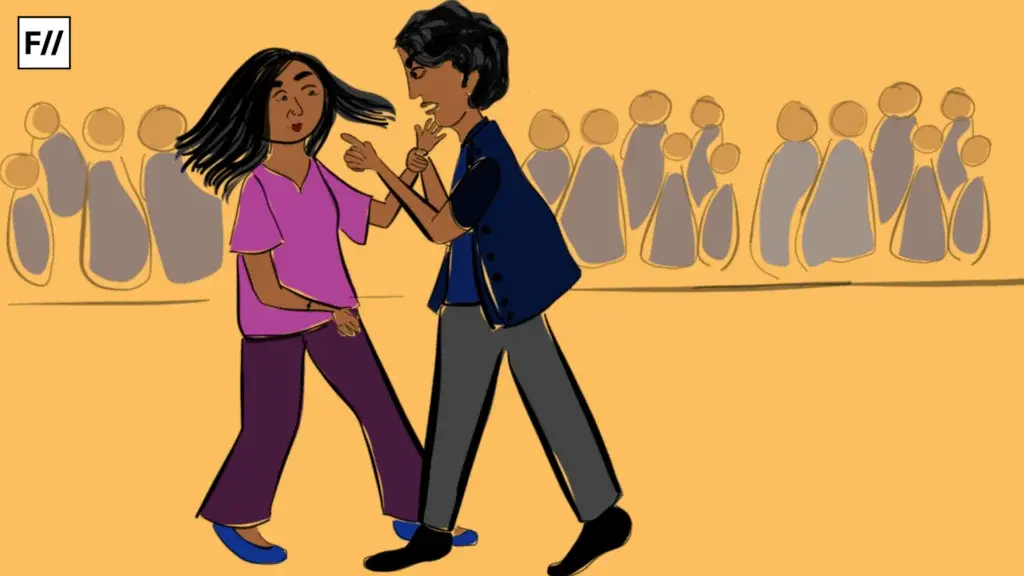Trigger warning: The article contains mentions of gender-based violence and communal violence.
The decision to let the eleven rapists who committed a heinous crime against Bilkis Bano in 2002 during the Gujarat riots is a decision that has shaken everyone to its core, and we will feel the aftershocks of this decision for a long, long time.
What does it mean for the rights of women in India? What does it mean for the future of India when we let convicted rapists walk free? What does this tell us about new India? A democracy that has just turned 75 years old.
On February 28, 2002, Bilks Bano fled her village Radhikpur in Gujarat. She was with her three and half years old daughter Saleha and fifteen other family members. On March 3, they reached Chapparwad village, and they were attacked by 30 people with sticks and swords. Among the attackers were the eleven accused.
The decision to let the eleven rapists who committed a heinous crime against Bilkis Bano in 2002 during the Gujarat riots is a decision that has shaken everyone to its core, and we will feel the aftershocks of this decision for a long, long time.
Bilkis who was five months pregnant at the time, was gang raped, her mother Halima and her cousin Shamim were gang raped and killed as well. Bilkis’s three-year-old daughter was killed brutally. Bilkis woke up to find her relatives and her daughter dead, and she took refuge with the tribals of the land until the violence stopped and then sought out justice for herself and her relatives by filing a police complaint.

After seventeen years, Bilkis was given justice as the Supreme Court in 2019 awarded her 50 lakhs, and her case was one of the first cases that won such a court directive in the Godhra and post-Godhra riots case.
Bilkis Bano fought to ensure that not only the men that raped her and heinously murdered her daughter were brought to Court, but she was also able to bring to notice the doctors and policemen who tried to protect the rapists and murders were put behind bars. But the trauma of it will always remain with her, and now the justice system has betrayed her by letting the eleven rapists walk free.
Bilkis stated, “When I heard that the convicts who had devastated my family and life had walked free, I was bereft of words. I am still numb,” she said.
“How can justice for any woman end like this? I trusted the highest courts in our land. I trusted the system, and I was learning slowly to live with my trauma. The release of these convicts has taken from me my peace and shaken my faith in justice,” she wrote, appealing to the Gujarat government to “undo this harm” and “give me back my right to live without fear and in peace”.
Bilkis was five months pregnant at the time, was gang raped, her mother Halima and her cousin Shamim were gang raped and killed, and Saleha Bilkis’s three-year-old daughter was killed brutally. Bilkis woke up to find her relatives and her daughter dead, and she took refuge with the tribals of the land until the violence stopped and then sought out justice for herself and her relatives by filing a police complaint.
The rapists walked out of jail and were fed sweets, garlands were placed on their necks, and we have to ask ourselves, “What is the message being given to the women of the country? The Prime Minister delivered a speech on August 16 at the red fort where he spoke of the emancipation of women. Is this the message the government of India wants to send out to the women of India the double standards of justice?”

The law that has been used to let the convicts go free is questionable, and the 1992 remission policy was used in a court case in 2012 when shah petitioned the Court after being imprisoned and was granted remission according to the policy.
However, to release the convicts under this policy, consent of the union government is required, and no prisoner can be released without the permission of the union government. Earlier in June, the government had issued a new special policy formulated as part of ‘Azadi Ka Amrit Mahotsav’ or the celebration of 75 years of independence.
As per the guidelines of the policy, the government had clearly stated that persons who were sentenced to life imprisonment and rape convicts would not be entitled to early release under this new policy, and hence the eleven convicts should not have been released.
This clearly points to the hypocrisy of the BJP-led government, especially after the speech given by the Prime Minister at the Red Fort when he spoke about the emancipation of women’s rights and the goal to eradicate misogyny from India.
The India we live in has disappointed the people of India time and time again, with the Hathras rape case, the Unnao rape case, the murder of an eleven-year-old Dalit boy in an RSS-run school in Rajasthan and now the release of the eleven rapists show us that there is something truly and disturbingly rotten going on in the 75 years independent India.
Also read: Why Bilkis Bano’s Struggle For Victory Matters
The trauma the Bilkis and her family have lived in has only increased as they relive the painful and violent events of what happened to them all those years ago. The Indian justice system has betrayed them by letting the convicts walk free, the future for women’s rights and justice for women in India today is disappointing, and sadly the future for women in India, particularly Muslim, Dalit, OBC, Adivasi and Sikh women in India is grim.
Also read: ‘Hindutva Feminism’ And Its Rhetoric Of Hatred & Exclusion
Featured image source: The Wire
About the author(s)
Zeba Vagh is pursuing her degree in screen writing from Whistling Woods Mumbai International. An aspiring writer, her work has been published with the Live Wire. She can be found on Instagram.





Rapist should be punished otherwise they will rape other surrounding girls n how safe is india